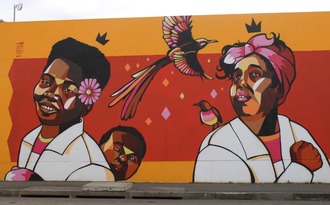- Featured
- Clean air
- Climate justice
- Consumer Rights
- Corporate Accountability
- Data access
- Early Childhood Development
- Economic fairness
- Education
- Electoral fairness
- Environmental justice
- Food justice
- Gender based violence
- Grants/social assistance
- Health
- Housing and infrastructure
- Industry interference
- Land Justice
- LGBTQIA+ rights
- Media/ information access
- Public transport
- Racism
- Reparations
- Safety
- Sanitation
- Service Delivery
- Sexual and Reproductive Rights
- Social justice
- Unemployment
- Womxn's rights/ gender equality
- Workers' rights
- More
-
Call on SA Government to Back Mass Farmer Strike in India!Since the 26th of November 2020, tens of thousands of farmers have camped near the border of New Delhi, the Indian capital. On that day, an alliance of national trade union federations called a nationwide strike which converged with a march on Delhi by the All India Kisan Sangharsh Co-ordination Committee (AIKSCC), a united front of over 250 farmer organisations. Large parts of the country came to a halt as direct action was undertaken. Protesting farmers were met with unacceptable police brutality - blockades, teargas, baton charges and water cannons - in a bid to prevent them from reaching the centre of Delhi. In South Africa we are all too familiar with the use of brutal police tactics to suppress popular protest and we condemn the use of these tactics against our comrades in India. The striking farmers have declared that they will not return home and the strike will not cease until the agriculture laws are repealed entirely. They will not be moved and we salute their resolve. India’s agriculture industry employs more than half of its population of nearly 1.4 billion people. The country is in the middle of an unprecedented economic decline, experiencing the worst recession in nearly 30 years. Socio-economic inequality is staggering. As South Africans we are also aware of how closely-linked unemployment and socio-economic inequality is to hunger. India’s new agriculture laws were passed despite a lack of consultation with agriculture experts and the leaders of farmer organisations. These laws threaten the acquisition of produce by state-run organisations at a fixed Minimum Support Price. What this means is that small producers have little bargaining power in the free market system and fear that large corporations will take advantage of this, forcing farmers to sell their produce at a lower price than the price which had previously been guaranteed to them by the government. The laws come at a time where there is increasing conflict and disagreement between farmers and the state, on account of the government turning a blind eye to farmers’ demands for better crop prices, additional loan waivers and irrigation systems to guarantee water in times of drought. They are also framed by the horrific numbers of Indian farmers who have been driven to suicide by debt. All of this is happening within the context of carbon capitalism which is putting the future of humanity in jeopardy and exposing the most vulnerable among us to the effects of the climate crisis. In South Africa, in India and across the world, corporations are not the solution – they are part of the problem. The methods of small scale farmers across the world will not only feed the people, but will also build resilience in the face of the climate crisis. The protection of the knowledge and practices of indigenous communities at the forefront of this movement is also paramount. In the face of oppression and systems of exploitation that stretch across borders, it is necessary for us to globalize resistance and join hands to push back against oppressive policies which threaten the lives of the most vulnerable. Amandla! Inquilab Zindabad!172 of 200 SignaturesCreated by South Africans Against Fascist India

-
Say No to Nuclear Energy plans by 5th FebruaryNuclear power is dangerous, unhealthy and costly. We should instead move toward a just energy transition, investing in and supporting renewable energy (RE) sources. Not only is RE able to create a more inclusive energy landscape – giving formerly-excluded communities more of a chance to be part of the economy – the risks associated with RE are significantly less. Nuclear plants – big or small – are very expensive to set up, often with cost overruns and construction delays. There are a number of reasons to create a groundswell of opposition against nuclear for South Africa’s energy mix. 1. As history has taught us, new nuclear procurement is where large scale corruption can, and has, taken place. In this instance, little to no information has been provided to the public on the cost and feasibility of new nuclear energy. Transparency is needed to build back public trust after past illegal and unconstitutional nuclear deals. 2. Nuclear power is not needed for our energy grid now or in the future. Especially during the covid crisis, we should not be looking at procurement of one of the most expensive forms of energy, but rather investment in more critical areas of need such as vaccines, education and employment. 3. The most recent Energy plan, IRP 2019, does not show necessity for the procurement of nuclear energy. Also no-one can guarantee 100% safety with nuclear energy. Radiation and radioactive waste created at nuclear power stations are extremely toxic. More nuclear power could put the health of workers – most-likely younger people – and communities at risk. Consider for a moment what Electrical Engineer Hilton Trollip points out, “We absolutely do not need Koeberg to avoid load shedding. There are documented and proven sustainable electric systems that can run very well without nuclear and even without coal.” Why then, is our government not more serious or committed to the #JustEnergyTransition? Nuclear is not the long-term solution South Africa needs to resolve the energy crisis, and it certainly will do much less for the economy than renewable energy. References https://ewn.co.za/2017/04/26/western-cape-high-court-rules-sa-nuclear-deal-unlawful-and-unconstitutional https://theconversation.com/why-decommissioning-south-africas-koeberg-nuclear-plant-wont-be-easy-89888#:~:text=The%20potential%20cost%20of%20decommissioning,UK%20model%20at%20R76%20billion https://www.iol.co.za/news/south-africa/western-cape/safety-concerns-over-koeberg-nuclear-plant-as-cape-town-tremors-grow-in-intensity-74d7b088-2840-41ee-a8a7-a40fa83451ee1,231 of 2,000 SignaturesCreated by SAFCEI

-
Justice for the brutal murders of Makoena Mabusela and Tebogo Mphuti #justice4maksandtedGender-based violence has become rampant in South Africa. Women and children are brutally murdered daily. We cannot continue to go on like everything is normal. IT IS TIME TO TAKE A STAND AGAINST GBV. The government and private sector have to come together and remove the systemic barriers to gender equality and advocate for behavioural change in order to turn the tide that has made violence against women and children a societal norm. The two women who were brutally murdered had families and children. They were part of a community who were highly dependant on them. We need to build a justice system that women and children will feel confident in. We need a legal framework that will stand firmly against GBV and be in full support of women and children. The deaths of all these extraordinary women will not be in vain.11,109 of 15,000 SignaturesCreated by Thato Monanyane
-
Minister Patel must make COVID-19 medicines accessible to all by taking steps to #FixThePatentLawsCOVID-19 is a global health crisis and one that affects working-class and poor people disproportionately. The world needs bold steps such as this that prioritise the needs of vulnerable populations above profits and above nationalism. Patents, and other intellectual property instruments, can act as obstacles to accessing medicines because they protect manufacturers from competition, keeping the prices of medicines high. This was the case with anti-retroviral therapies (ART) in South Africa in the early 2000s – when hundreds of thousands of people needlessly died because they could not afford the high prices of ART. We cannot allow the same thing to happen with COVID-19. Access to medicines is a critical component of the right to access healthcare. We stand behind our government in its efforts to ensure that developing and middle-income countries are not left behind while wealthy countries secure deals with pharmaceutical companies, and we need Minister Patel and President Ramaphosa to act with urgency to ensure that South Africa has an intellectual property regime that ensures equitable access to life-saving medical products now!524 of 600 SignaturesCreated by SECTION27 Life Esidimeni Family Committee and SADAG

-
#DocumentUs | Birth Registration and Certificate for All ChildrenSouth Africa is a signatory to a number of international conventions, which give right to every child to a name, nationality and immediate birth registration. This right is further enshrined in South Africa’s Constitution. Section 28 states that ‘Every child has the right to a name and nationality from birth’- regardless of nationality. As a signatory of the 1989 Convention on the Rights of the Child, South Africa is obligated to pass and implement laws for the realization of children’s interests, and also duty-bound to protect all children regardless of nationality or documentation status. Despite this, hundreds of children are still being denied this right and has detrimental impact on their everyday lives. A birth certificate is essential for every child. There are however hundreds of children without birth certificates. According to the Department of Basic Education, there are 998 433 undocumented children enrolled in public schools - mainly of whom are without birth certificates. Of these children, the majority (880968) are South African children whose parents, guardians or caregivers have not managed to secure birth certificates for them. Without these documents children are essentially not recognised by the State. This leaves them vulnerable to multiple risks, exploitations and exclusions including: accessing education, health, being excluded from the services of child protection (Social Welfare and Assistance) and are at risk of being stateless. Due to restrictive birth registration policies (including expensive DNA tests) hundreds of children are being denied their constitutional right to birth registration and nationality. Furthermore, as a result of corruption and limited operation capacity (closure of Refugee Reception Offices, Accessibility of Home Affairs offices, long application times, and shortened permit extensions) result in difficulties in applying and extending permits often resulting in expired permits which impact on children who need to be documented. The following organisations endorse this campaign: Refugee Social Service Refugee Rights Centre (NNMU) Lawyers for Human Rights Sophiatown Community Psychological Services1,396 of 2,000 SignaturesCreated by Abigail Dawson
-
#ApartheidBanks: Justice for Apartheid Economic crimeAn important component of accountability is combating impunity and dismantling the networks and institutions responsible for corporate crime, as there is a link between the institutions that perpetrated these crimes in the past and those responsible for state capture today. Holding these instrumental actors to account, including through prosecution, is a critical step to restoring the Rule of Law in our country today. The Commissioners of the Truth and Reconciliation Commission (TRC) have issued a separate letter to Adv. Shamila Batohi calling for the NPA to act on this evidence. We recognise that the TRC, in its final report in 2003, called on the NPA to pursue perpetrators not awarded amnesty through a process of ‘bold prosecutions’ of apartheid crimes. This has not happened, in large part because of political interference in the NPA’s work under previous administrations. It is for this reason that prosecutions against these economic criminals and other apartheid-era human rights violators would send a clear signal that the NPA stands firm against impunity. South Africa faces many pressing problems today, including the profiteers of Covid-19 relief and the legacy of recent state capture networks. The corrupt corporations and politicians who profit from these deals have caused pain and suffering to the South African people. They have made us poorer, more unequal and taken away jobs. The legacy of apartheid-era economic criminals is no less severe and important and we demand that the NPA prosecutes these actors without fear or favour. This is a necessary and urgent step towards social justice. The South African Coalition for Transitional Justice (SACTJ) - endorsed by friends of SACTJ and the following organisations: 1. Centre for Applied Legal Studies (CALS) 2. Centre for the Study of Violence and Reconciliation (CSVR) 3. Foundation for Human Rights (FHR) 4. Human Rights Media Centre (HRMC) 5. Institute for Justice and Reconciliation (IJR) 6. Khulumani Support Group (KSG) 7. (Open Secrets) 8. South African History Archives (SAHA) 9. Violence Prevention Agency (VPA) Additional civil society endorsements: 10. Alternative Information and Development Centre (AIDC) 11. Corruption Watch (CW) 12. International Labour Research and Information Group (ILRIG) 13. Lawyers for Human Rights (LHR) 14. Legal Resources Centre (LRC) 15. My Vote Counts (MVC) 16. Organisation Undoing Tax Abuse (OUTA) 17. Public Affairs Research Institute (PARI) 18. Section27 (S27) 19. Southern African Faith Communities’ Environment Institute (SAFCEI) 20. Southern Africa Litigation Centre (SALC) 21. Shadow World Investigations (SWI) 22. Unpaid Benefits Campaign (UBC) [1] https://www.opensecrets.org.za/site/wp-content/uploads/Apartheid-Banks.-NPA-Docket.-Annexures-1-26.pdf [2] https://www.opensecrets.org.za/apartheidbanksdocket/302 of 400 SignaturesCreated by Open Secrets ZA

-
UNIVERSITIES TO ISSUE OWING STUDENTS GRADUATE CERTIFICATES1. This will help many students enter the job market. 2. Universities' financial sustainability will improve as more graduates get jobs and start paying-off their debts. 3. This will also reduce the social burden on the government of giving out grants as more people are employed. 4. This will contribute to the NDP and the GDP of South Africa.8 of 100 SignaturesCreated by Nat Turner
-
Basic Income Support for people aged 18 to 59 NOW!The COVID-19 pandemic is a global economic and humanitarian crisis. South Africa’s already dire economic situation, with the triple challenges of systemic poverty, unemployment and inequality, has become bleaker. The national lockdown has exacerbated structural unemployment, led to increased food prices and placed an immense strain on household resources. The pandemic has compounded food insecurity and hunger is widespread. Almost half of the population is chronically poor. For the foreseeable future, the economy in its current configuration will not absorb all the unemployed. Section 27 of the Bill of Rights in the South African Constitution makes provision for Social Security, “including appropriate social assistance if they are unable to support themselves” [2]. Income support in the form of social grants is provided to approximately 18 million of the most vulnerable: the elderly, children and people with disabilities. However, able-bodied people aged 18 to 59 with no or little income are excluded from the social assistance grants. The South African government must uphold the United Nations, International Covenant of Economic, Social and Cultural Rights [3], which it ratified. The Covenant forms the cornerstone of international human rights law. Key recommendations made are that the South African government “ensure that those between the ages of 18 and 59 with little or no income have access to social assistance; consider the possibility of introducing a universal basic income grant”; and “raise the level of government social assistance benefits to a level ensure an adequate standard of living for recipients and their families”. The government’s Social Relief of Distress package introduced a monthly R350 COVID-19 Social Relief of Distress (SRD) grant for six-months for the unemployed, and CSG increase of R500 to be given per caregiver monthly for five months until October 2020. While most grants benefitted from a monthly top-up of R250 for six months, the Child Support Grant was increased by R300 for the month of May only, and then only given per caregiver. Both new social grants are inadequate to cover basic food, energy sources and transport, as well as the additional cost of complying with hygiene protocols during the pandemic. The cost of the monthly basket of staple foods has increased by 6% to R3 413,14 for the period March to July 2020 for the average household. Furthermore, the online platform for applications and dated verifying databases continue to result in serious access challenges for those eligible for the COVID-19 SRD grant. Income support for those aged 18 to 59 with no or little income is a critical step towards the government’s implementation of a universal basic income grant to ensure that all who live in South Africa have an adequate standard of living. The following organisations endorse this campaign: Act Ubumbano, Ahmed Kathrada Foundataion, Albert Luthuli Human Rights Advice Centre, Alternative Information and Development Centre, Archdiocese of Durban Justice and Peace Commission, Beaufort West Advice Office, Bench Marks Foundation, Bertha Centre for Social Innovation and Entrepreneurship Graduate School of Business, Bohlabela Advice Centre, Botshabelo Unemployment Movement, Cancer Alliance, Cash Transfers Working Group of the C19 Peoples Coalition, Centre for Applied Legal Studies, Children in Distress (CINDI), Community Advice Offices South Africa (CAOSA), Consortium for Refugees and Migrants in South Africa (CoRMSA), Congress of South African Trade Unions, Cooperative and Policy Alternative Centre (COPAC), Democracy Development Program, Dirang Ka Kagiso ( Community Home Based Care), Dirang Ka Kagiso ( Wellness Center), Dullah Omar Institute, Environmental Monitoring Group, Equal Education, Heidelberg Advice Office, Hillcrest Aids Centre Trust, Institute for Economic Justice, Institute for Poverty, Land and Agrarian Studies at the University of the Western Cape, Interchurch Local Development Agency, International Labour Research and Information Group (ILRIG), Jersey Farm Advice and Information Centre, Ketekani Community Project, Kgothatsanang organisation, Khutsong Youth Friendly Services, Advice Center, Kwafene Advice office, Lawyers For Human Rights, Legal Resources Centre, Mariann Coordinating Committee (MCC), Matlosana Development Forum, Middelburg Development and Advice Office, Muslim Judicial Council, Ndifuna Ukwazi, Open Secrets, Organised for Work, Probono.org, People's Health Movement, Public Affairs Research Institute (PARI), Public Service Accountability Monitor (PSAM), Right2Know, Scalabrini, Riversdale Advice and Community Development Agency, Section 27, Sexual and Reproductive Justice Coalition (SRJC), Shayisfuba Feminist Collective, Sisterhood Movement, Social Change Assistance Trust (SCAT), Social Justice Coalition, Social Work Action Network South Africa, South African Domestic Services and Allied Workers Union (SADSAWU), South African Food Sovereignty Campaign, South African NGO Coalition (SANGOCO), Southern African Social Policy Research Institute, Standerton Victim Empowerment and Advice Office, Studies in Poverty and Inequality Institute (SPII), Ubuntu Rural Women and Youth Movement, Triangle Project, Western Cape Forum For Intellectual Disability, Women Hope for the Nation, Women on Farms Project, amandla.mobi, Vianney Child and Youth Care Centre, Women's Legal Centre, Workers World Media Productions (WWMP), Zenzeleni Project [1] Cost of household food basket rising, ENCA June 2020 [2] https://www.justice.gov.za/legislation/constitution/SAConstitution-web-eng-02.pdf [3] https://www.ohchr.org/en/professionalinterest/pages/cescr.aspx328,805 of 400,000 SignaturesCreated by Black Sash

-
Public land must benefit all Capetonians - Object to the King David Mowbray Golf Course LeaseOver the last couple of weeks, the City of Cape Town has said that it is experiencing an unprecedented increase in poor people occupying vacant land. The vast majority of people occupy land out of necessity- they have nowhere else to go [3]. And a huge part of why people have nowhere else to go is because the state – at all levels – has failed to satisfy the need for housing or redistribute well-located land. This failure has exacerbated spatial inequality in Cape Town – which is the most spatially divided city in the country in terms of race and class. The City has consistently blamed this spatial injustice on the lack of well-located land that could be used for affordable housing. But the City often misses the most obvious solution: it already owns massive pieces of land in well-located areas. Land that is unused or not being used to its full potential, that could provide ample space for affordable housing and reverse the City’s apartheid legacy. Last year, Ndifuna Ukwazi released a research report exposing how the City is disposing of the public land it owns by leasing it to private organisations at massively discounted rentals [4]. This land includes parking lots that are empty for up to 18 hours a day, bowling greens with very few members, and massive golf courses that provide enjoyment to only a few wealthy residents on the weekends. This is an inefficient, exclusive and unsustainable way to deal with well-located public land. Surely this land should be put to better use? While the City has increased the rental tariff it charges for sporting purposes, which means that it will charge King David Mowbray Golf Course is R11 500 per year (as opposed to the R1 095 a year that it plans on charging Rondebosch Golf Club), this misses the point. Aside from still being an incredibly low rental for this land, it does not address the City’s obligation to redistribute public land. This land-use does not align with the City’s own inclusive development priorities and fails to give effect to the Constitution’s commitment to housing and equitable access to land. The redevelopment of the land leased to the King David Mowbray Golf Course offers a vital opportunity to act on a new vision for a just and more equal Cape Town. The land could be used to create an inclusive, environmentally sensitive suburb, with a positive urban environment and inclusive green spaces that bring people together rather than tear them apart. If we are serious about addressing Cape Town’s apartheid legacy, we need to make our voices heard. Object to the lease renewal of this prime public land that should be used for affordable housing before 25 August 2020. Ndifuna Ukwazi has put together this progressive submission you can use when sending in your own objection. We invite you to use this as a draft and tailor it to make your voice heard. If enough of us send in our objections we can stop the City of Cape Town from renewing the King David Mowbray Golf Course lease. [1] https://awethu.amandla.mobi/petitions/cheap-rent-for-the-rich-object-to-the-rondebosch-golf-course-lease-3 [2] City of Cape Town. 24 July 2020. Lease: Erven 29453, 29449, 29455, 32716 Cape Town, Raapenberg Road, Mowbray. Cape Argus. Available: https://jmp.sh/II39Y3i. [3] Bosch, Hazell and Clark. 2020. Making Room for Housing. Edited version published by Weekend Argus and IOL News on 8 August 2020. Full version available: https://jumpshare.com/v/ZMRTKEYftZpoCK8joDOe [4] Ndifuna Ukwazi. 2019. Cape Town’s Failure to Redistribute Land. Available: https://drive.google.com/file/d/1Pxly1G47qbC79l58Oss4vKvvK4AO71M-/view1,617 of 2,000 SignaturesCreated by Ndifuna Ukwazi

-
Pledge Solidarity with Eastern Cape Community Health WorkersWe can no longer tolerate a situation where our state, far from being an example of good labour practice, is responsible for the casualisation of work and the exploitation of the mainly women workers who are leading grassroots healthcare provision in our communities. CHW’s demands, in the Eastern Cape and in the rest of the country, for secure employment and a living wage must be met, with immediate effect. We note the recent permanent employment of CHW in Gauteng as a step in the right direction and hereby demand an end to regional disparities in the pay, recognition and integration of CHW into the workforce of the National Department of Health.839 of 1,000 SignaturesCreated by Anneleen De Keukelaere
-
Decriminalise the Lockdown Regulations to decrease the number of people living with criminal recordsPeople who are being charged with offences under the current Lockdown Regulations are (sometimes unwittingly) being issued with criminal records. This is an issue that is affecting all members of society, and will have negative consequences far beyond the end of the Lockdown. Predictably, the most vulnerable and disadvantaged groups in society will be disproportionately impacted. We would like to collect information about people's experiences of being issued citations (fines) for violations of the COVID-19 Lockdown Regulations, to understand how the Regulations have been enforced and its impact on people in South Africa. If you are willing to share your experience, please fill out this anonymous questionnaire: https://forms.gle/eRSZFouw2LeNfaiJ61,075 of 2,000 SignaturesCreated by Criminal Records Coalition
-
Demand Corona Relief Fund be set up for precarious workers during the LockdownPrecarious workers make use of mass transport systems (taxis and buses) to get to and from work, areas the WHO and National Department of Health have deemed as high risk for infection. Furthermore, domestic workers and health care workers work in intimate spaces with people who are at high risk of COVID-19 infection, such as the elderly and people who have travelled to and from high-risk countries. However, due to the legacy of inequality, we continue to live in, these are the very same workers who will not be paid – and cannot afford – to self-quarantine. Without income, they also cannot afford healthy food or medication, making them even more vulnerable. We commend the Government for communicating around COVID-19, however, gaps remain in addressing the anxiety, fear and stigma related to infection. On top of the fear of dying, vulnerable workers reside in communities where the potential is high for stigmatisation and discrimination in the event of self-quarantine or being identified as having the virus. We believe that a successful response to COVID-19 requires unity among all who live in South Africa, and we aim to be part of a unified solution. That unified response, however, requires Government to take bold and deliberate steps to ensure that the most vulnerable members of society are cared for and have their dignity and livelihoods secured. COVID-19 will exacerbate inequality among the working class of this country as they do not have the choice to ‘work from home’ and they are subject to ‘no work no pay’ labour conditions. This is compounded by the fact that domestic workers and informal workers particularly still do not have access to the Compensation for Occupational Injuries and Diseases Act (COIDA) that other COVID-19 affected formal workers have. This means that domestic workers and informal workers cannot claim compensation in the event that they contract COVID-19 while at work. Given that we are officially under a national state of disaster, Mr President, we call for expedited access to the Unemployment Insurance Fund (UIF) for domestic workers and informal workers.830 of 1,000 SignaturesCreated by Coalition of Unions, Formal and Informal Workers, Organisations, Activists and other Allies
.png)
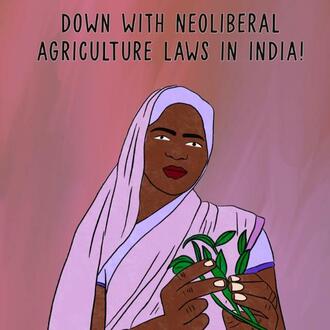.jpg)
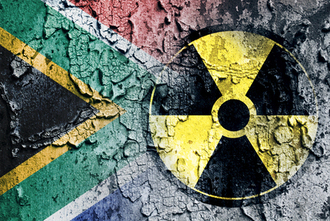
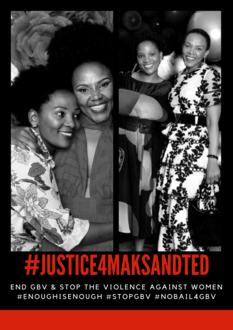
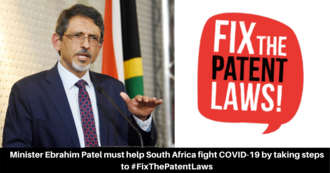
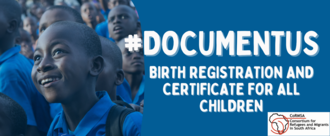.png)
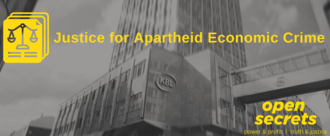
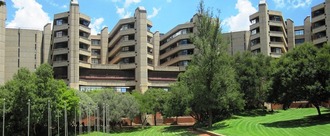
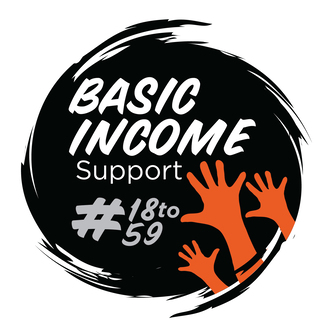
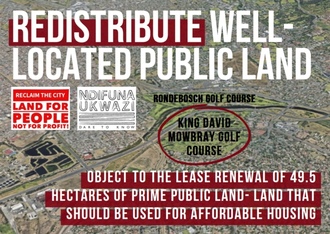

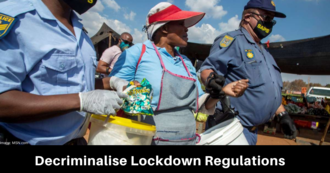.png20200618-20578-rqozqx.png)
